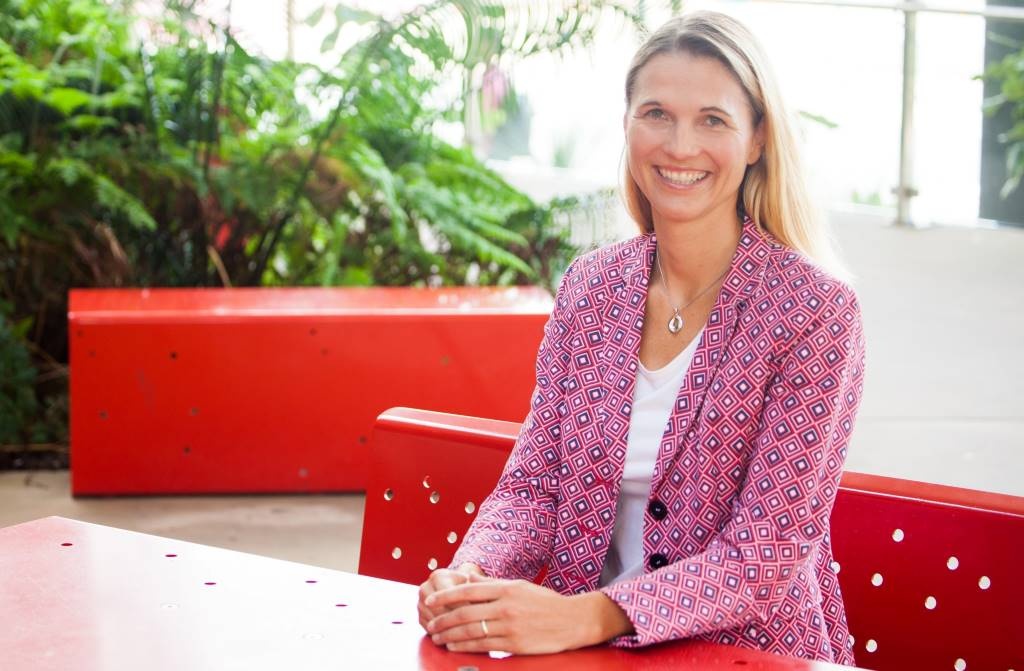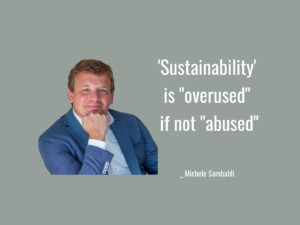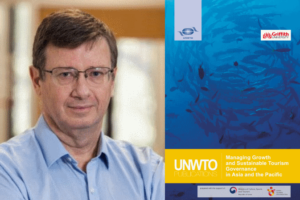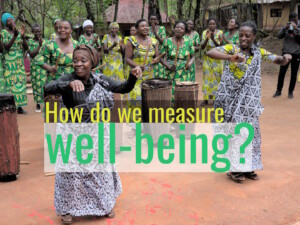Regenerative tourism vs sustainable tourism: What’s the difference?

For this “GT” Insight, Susanne Becken and David Gillbanks correspond to explore some of the similarities and differences between the new buzz phrase “regenerative tourism” and the old buzz term “sustainable tourism”.
DG: In a recent piece for Newsroom you wrote: “The very basic underpinning of regenerative tourism is that it is understood to occur within an ecosystem of natural, social and cultural elements and interactions. Taking a holistic approach is essential in understanding positive effects (e.g. healing) as well as unintended consequences (e.g. degradation).”
Previously you worked on (and wrote about for “GT”) a dashboard for sustainable tourism that would extend data gathering, monitoring, and reporting systems to “non-economic indicators that reflect the full suite of sustainability dimensions”. I wonder whether such an approach could work for regenerative tourism given its more philosophical tone. And, if so, in what ways would it be different to how you framed the Global Sustainable Tourism Dashboard?
Dr Becken: It’s an interesting discussion. Here are a few first thoughts:
Sustainable tourism is still important, and you are right; one key motivation for the Dashboard was exactly to look at the different dimensions in an integrated way … something that does not often happen. Many pieces on sustainable tourism consider one dimension in focus, e.g. poverty, or maybe carbon. But to look at all of them and say, “hey, here’s some economic benefit but it comes at a high cost of carbon …”; that is relatively new (or scarce).
But regenerative tourism goes a bit further and, by definition, is really place-based (that is not to forget global impacts, such as carbon emissions; regenerative tourism also needs to respect planetary boundaries). So the global Dashboard might give a flavour of the ‘integrated’ consideration, but it is global and in that sense detached from the lives of people on the ground. And lives and communities are embedded in their environment. Only if all function together in a way that ensures the health of the system, then tourism can continue to thrive.
Barcelona and Venice are examples where tourism radically eroded the social capital, and in Venice also clearly the environmental capital. There are other examples where tourism degrades the environment or culture, where essentially tourism is becoming exploitative. Turning this around is not easy, and frankly, it is likely that volumes would have to reduce.
Including local decision making is key in all of this. We are starting some work here in New Zealand where we sit together with all the stakeholders (especially Māori) and ask key questions around what everyone wants, what the value of tourism is, how it integrates to other parts of the economy, how much the destination can absorb to extract net benefit, who is benefitting, etc. But even then, of course, a destination is embedded in the country. Whilst the destination may choose to only want certain types of tourists and maybe not more than x number, then it is hard to close the doors when the country keeps increasing air links. So it all needs to be connected. That’s the real challenge.
Key ingredients? I’d say good data and understanding of impacts and feedbacks, political will, and partnerships built on trust.
It’s an evolving area but you can see that it does step beyond what we might call ‘sustainable tourism” (e.g. a resource efficient hotel).
DG: I understand that the concept of “sustainability”, and therefore sustainable tourism, also concerns itself with “natural, social, and cultural elements” plus the realpolitik of human incentive. This is most simply expressed in the three Ps of “People, Planet, Profit”, of course, as well as the “triple bottom line”. Does “regenerative tourism”, as you understand it, continue to have a role for free markets, free enterprise, and the profit motive? If so, in the context of place-specific regenerative tourism, how does business play with local government and community?
Dr Becken: Your questions around business are pertinent. There are of course new models such as social enterprises, collectives etc. where the business purpose is built around things other than maximising profit. Generating income is still important, to give wages to staff, to pay for business costs, to make exactly those contributions that the firm considers part of their core value. This could be to support conservation, school children, other education, etc.
Where the perfect balance lies, I believe, will remain to be seen and it will be a bit of trial and error, supported by research and evidence, and most importantly by people who work together towards a common goal. So, for a particular company in a destination, the focus in a traditional model is to maximise return to themselves. This is often achieved by doing the bare minimum in terms of environmental compliance (save costs), to reduce salaries/wages (minimum if possible), get into favourable contracts with the local council, avoid unnecessary sharing with potential competitors etc. This will secure short term gain, but long term pain. Staff will get weary and disloyal, local stakeholders will not trust the company, environmental activist groups will knock on the door …
There is an example of a large company here in New Zealand whose Board decided to return a substantial share to employees rather than shareholders. This was a big decision and had to be signed off by the Board. But it happened. Staff morale and credibility of the brand are extremely high as a result.
The key question in the regeneration debate, whether in tourism, agriculture, forestry, …, is how much ‘business activity’ can you hold up without exploiting the environment or people? Clearly, the present models erode capital (e.g. think about how we overuse and drain soils in intensive agriculture; it is the same in tourism) and achieve huge gains in the short term. If we move to more regenerative models, just by definition, the volume and through-put will become less. This might disproportionately affect those who currently benefit from the scale — CEOs, boards, …, essentially people in leading positions at the privileged end of the growing inequality spectrum — but it may not affect people on the ground and they could relatively gain; through better employment, but also quality of life and environment. This needs to be tested, and change might need to be gradual. But key is that the current model is highly consumptive, only benefits a few, and simply can’t continue forever. We have to try for a better way.
DG: To the extent the current model can’t continue forever then by definition it is not sustainable. Perhaps tourism can and should adopt regenerative principles to help it become more sustainable. I would love to see examples of this written up as “GT” Insights.
On another P — people — I have argued, for example here and here, that every host community should have a veto power; that if we assume there is a free marketplace of ideas then the choice must lie with those who have to live most directly with the consequences; that local needs, wants, and desires should trump external economic and political interests regardless of whether they are socialist, capitalist, mixed or however you and me might think about them. They may make “bad” choices.
How do you feel about that in the context regenerative tourism?
Dr Becken: The local voice is absolutely critical in regenerative tourism (and that should also be the case in sustainable tourism, by the way). All too often are local needs or desires overrun by external decision makers, and this might include the central government of a country or global stakeholders. There are some excellent examples in the recent report by the New Zealand Parliamentary Commissioner for the Environment that highlight how ‘Wellington’ made decisions in favour of tourism development and against the will of the local people.
There seems to be an assumption that local people may not know what is best for them. It is not uncommon that external consultants are brought in to tell them what they need. I do not believe this is a good approach, and I actually would say that local people know best about their place, the culture, sensitive environments etc.; they need to be at the core of tourism development decisions.
In addition, of course, they are entitled to reaping the benefits from tourism, and that is another problem of the current top-down structure where costs are borne locally, and benefits (e.g. tax intake) are reaped nationally. Many councils struggle with limited resources to manage tourism as funds are not distributed back to the local level. The core proposition of regenerative tourism as being place-based might move this distortion into the right direction.
DG: If you were in a lift (elevator) and were asked what “regenerative tourism” is, what would you say?
Dr Becken: Give back more than you take.

Featured image (top of post): An unfurling silver fern frond, New Zealand. By Jon Radoff (CC BY 2.5) via Wikimedia. The koru (Māori for “loop” or “coil”) is based on the appearance of an unfurling silver fern frond. It is an integral symbol in Māori art and culture, where it symbolises new life, growth, strength and peace; conveys the idea of perpetual movement; suggests returning to the point of origin. (Wikipedia)
About Susanne Becken

Susanne Becken is a Professor of Sustainable Tourism at Griffith University in Australia and the Principal Science Investment Advisor (Visitor) in the Department of Conservation, New Zealand. Dr Becken is also a Vice Chancellor Research Fellow at the University of Surrey in the UK and was the founding Director of the Griffith Institute for Tourism.
Dr Becken is a member of the Air New Zealand Sustainability Advisory Panel, and sits on the Advisory Boards of My Green Butler, NOW Transforming Travel, and the Whitsunday Climate Change Innovation Hub. A Fellow of the International Academy of the Study of Tourism and the 2019 UNWTO Ulysses Award winner, Dr Becken has published more than 100 articles on sustainable tourism, climate change, and tourism resource use.


![Regenerative tourism vs sustainable tourism: What's the difference? 5 Professor Valeria Minghetti: "[B]e curious. Never stop asking yourself questions. Curiosity and the desire to find solutions is what makes a difference ..."](https://www.goodtourismblog.com/wp-content/uploads/2024/05/Professor-Valeria-Minghetti-300x225.jpg)


